It rained for four days straight in Dublin the first week of October, casting a soggy grey light over the city.
A rain-streaked window obscured my view of the passing landmarks as the bus headed from airport toward my hotel on Upper Leeson Street in the south-east side of the city.
Halfway through the journey, the sky cleared momentarily. I glanced out the window and found myself face to face with the best landmark in Dublin – its colourful doors.
In fact, the first photo I took in Dublin was through the bus window at that moment because there below me was a scene I somehow recognised.
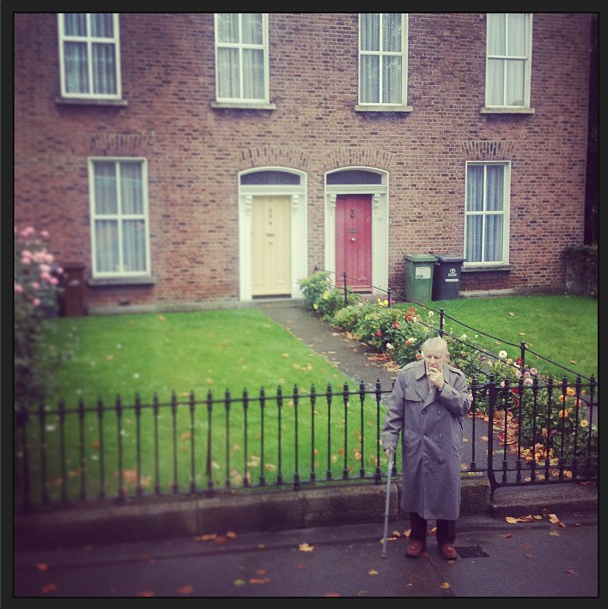
I didn’t realise what it was at first that made it seem like such a “Dublin” image, but it was, of course, the yellow and red doors.
Even if you haven’t been to the Emerald Isle yourself, you’ve probably seen the posters, the calendars, the postcards of Dublin doors.
They’re all over the city, but some of the best examples can be spotted around the historic squares: Parnell Square, Mountjoy Square, Merrion Square and Fitzwilliam Square as well as the central park, St. Stephen’s Green.
On my first stroll back to the city centre from the hotel, I stopped to photograph a pair of doors that caught my eye, balancing my umbrella while taking my camera out of my bag.
I was standing near a bus stop where a man in a tweed cap was leaning against a light post watching me with an amused smile.
I smiled back and like most Dubliners I met along the way, he was friendly and struck up a conversation as soon as we made eye contact.
“First time in Dublin?”
“Second, but the first visit was a long time ago.”
“I see you like our doors. There’s a real nice set up by the pub on the corner if you’re walking that way,” he said with a wink as the bus squeaked to a stop in front of us. “Enjoy your visit.”
I was in Dublin for TBEX, with 600 travel bloggers, to listen to inspirational speakers like John Minahan and Don George, but I still had a bit of time to explore.
So I went on a treasure hunt for doors.
Or at least it seemed that way, since I felt the need to keep photographing them.
Before long, I started to ask people why they were so colourful.
I knew the story dated back to the Georgian times, since most of the coloured doors were on the fronts of otherwise pretty plain Georgian style homes.
The most common story was that with strict architectural guidelines to adhere to, this was a way to add personality, for residents to differentiate their homes from others.
Another story that tour guides love to tell involves the writers George Moore and Oliver St. John Gogarty who were neighbours on Ely Place. Gogarty had a habit of coming home drunk and knocking on Moore’s door instead of his own. Moore painted his door green so he wouldn’t get confused. Then Gogarty retaliated and painted his red. It was a domino effect from there.
A third story goes that after Queen Victoria died, England ordered Irish citizens to paint the doors black in mourning. The Irish rebelled and took out the bright paints instead.
And yet another tale that circulates in Dublin is that the painting of colourful doors was started by women. They were sick of excuses from their drunk husbands who accidentally walked in the wrong door, went up the wrong stairs, stumbled into the wrong bedroom and slept with the wrong woman. The coloured doors bashed these excuses.
Whatever the story, I think they’re great and they certainly brighten up a city that was dull and rainy for much of the time I was there.
More on Dublin soon!

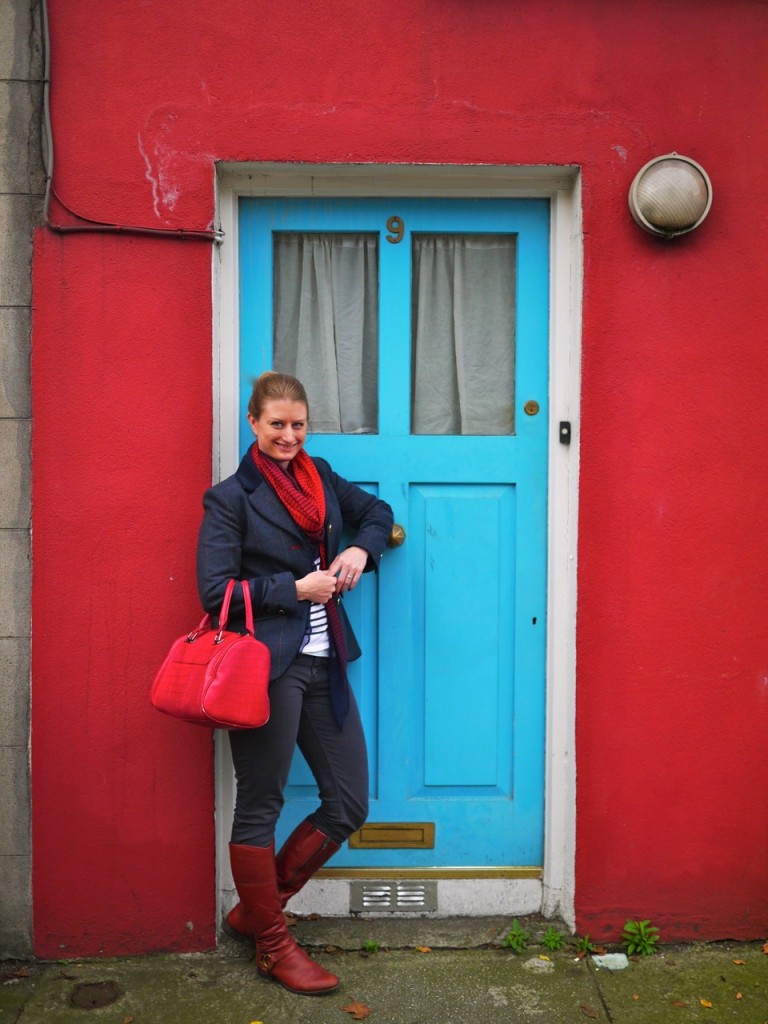
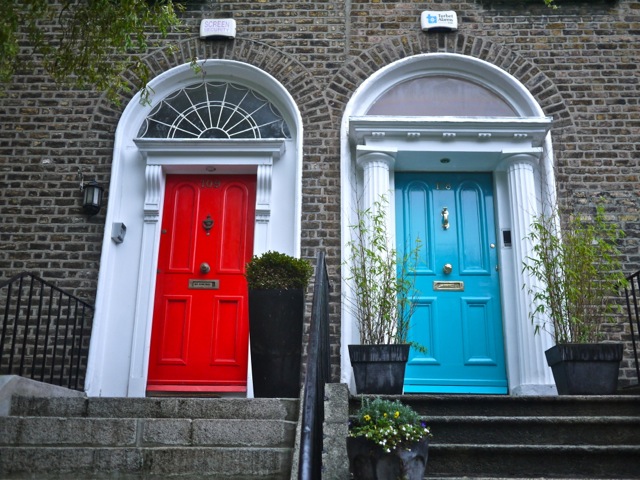
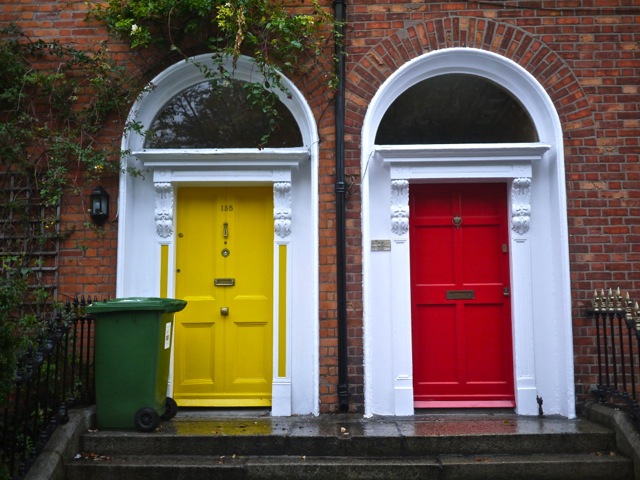
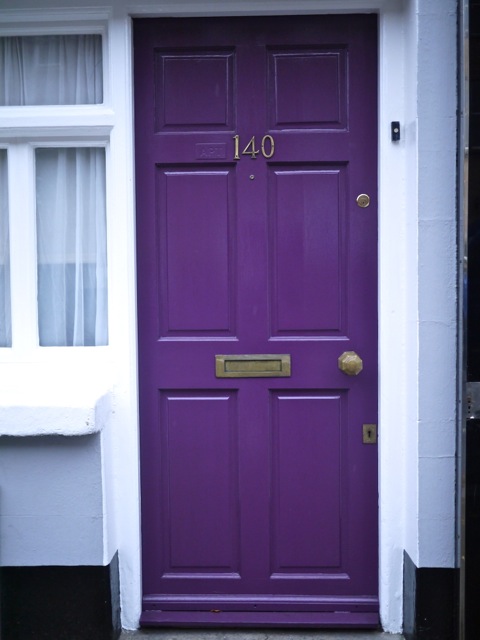
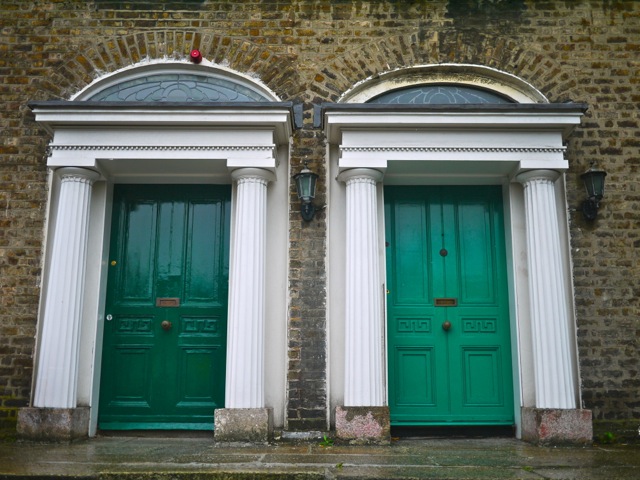
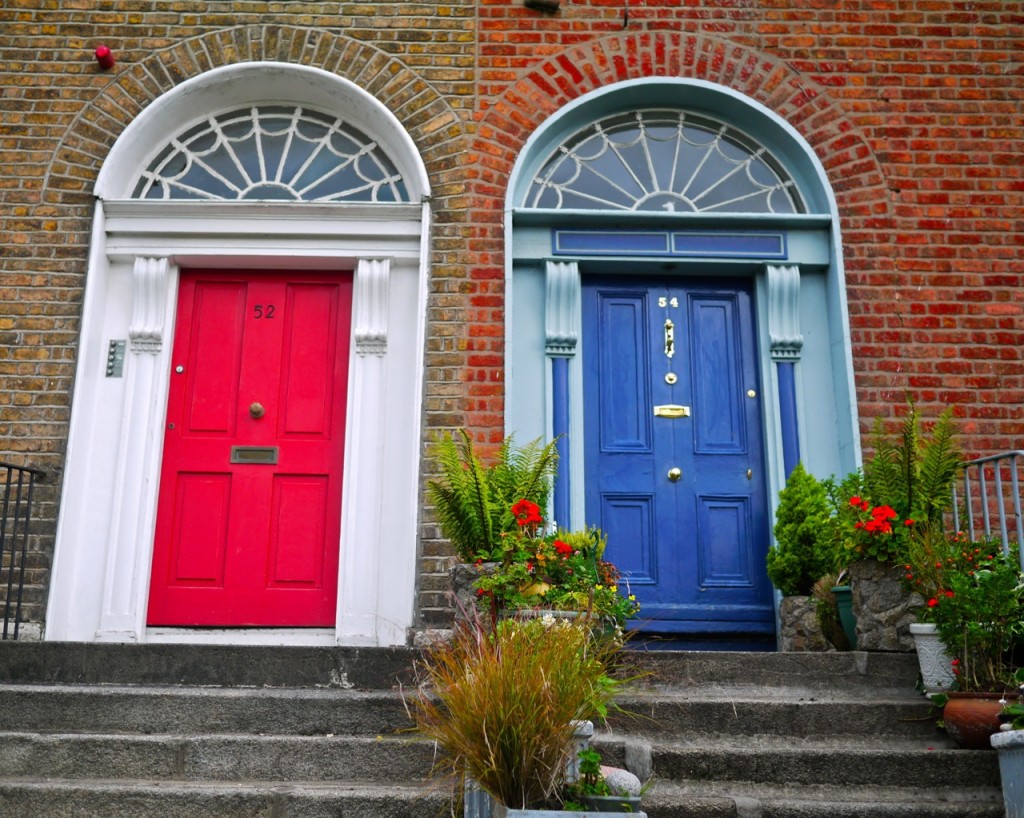
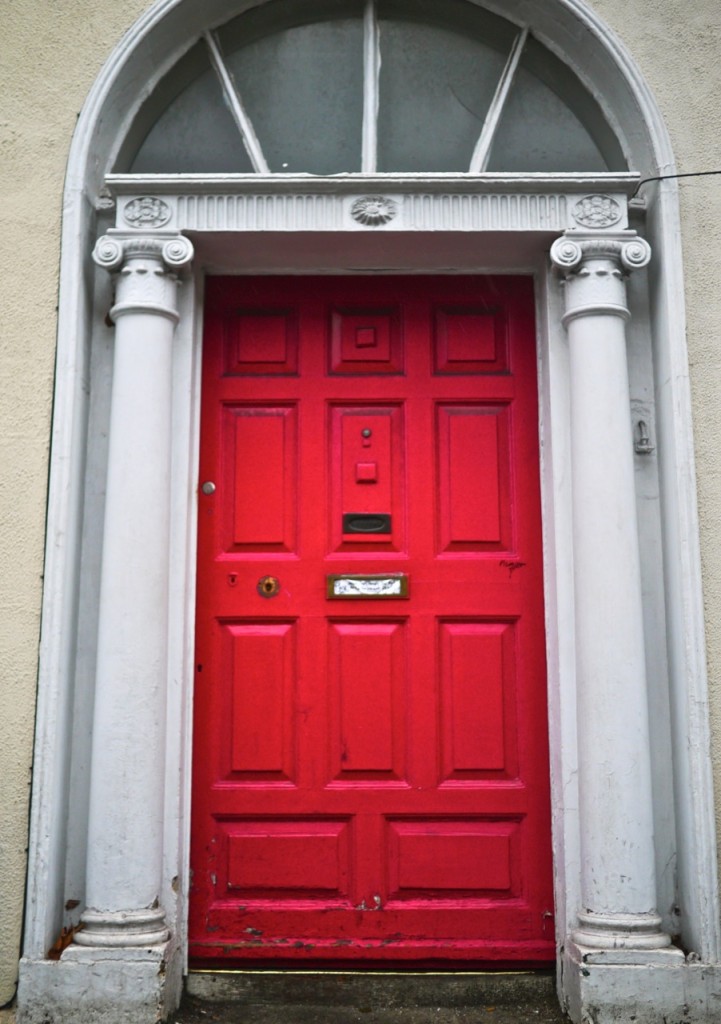
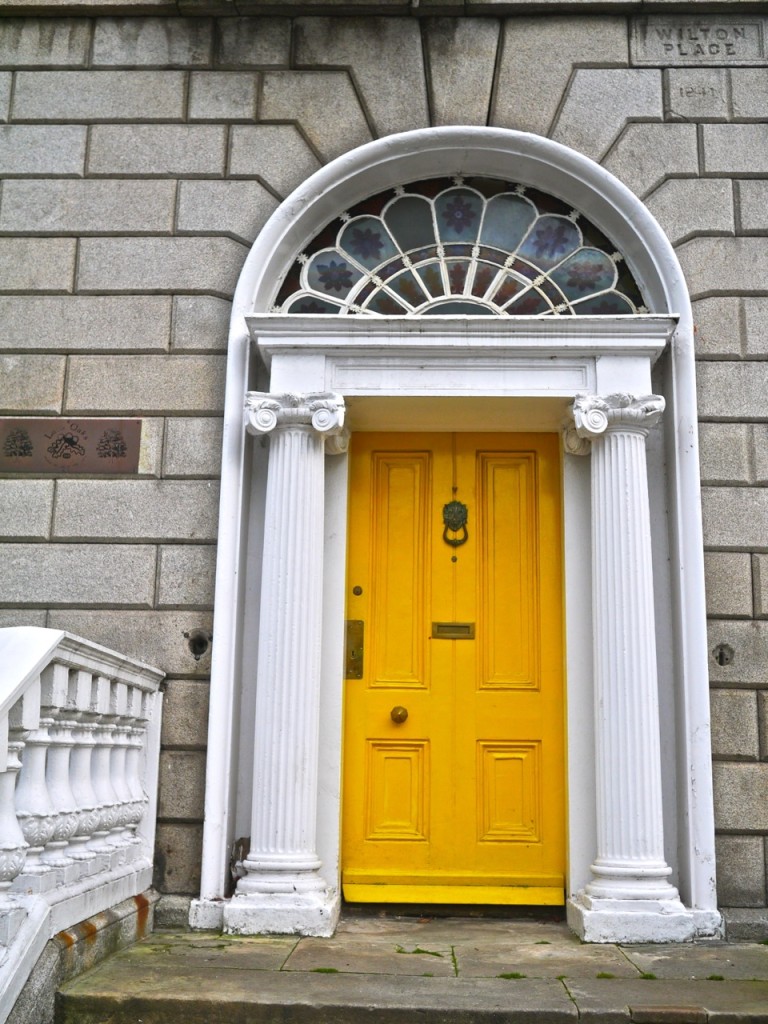
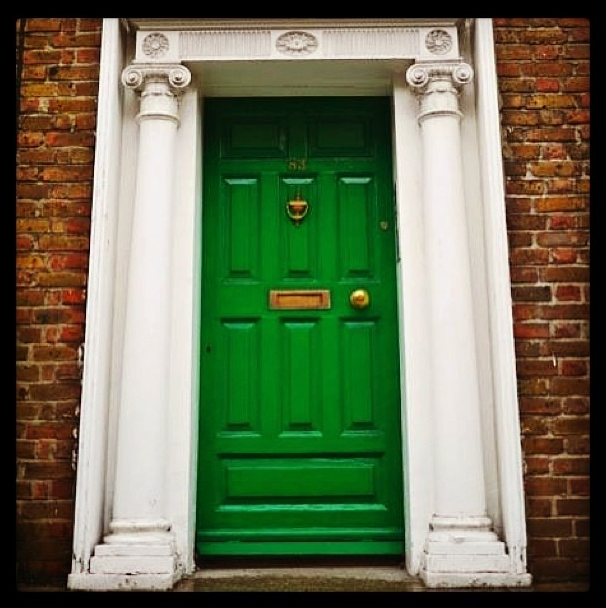
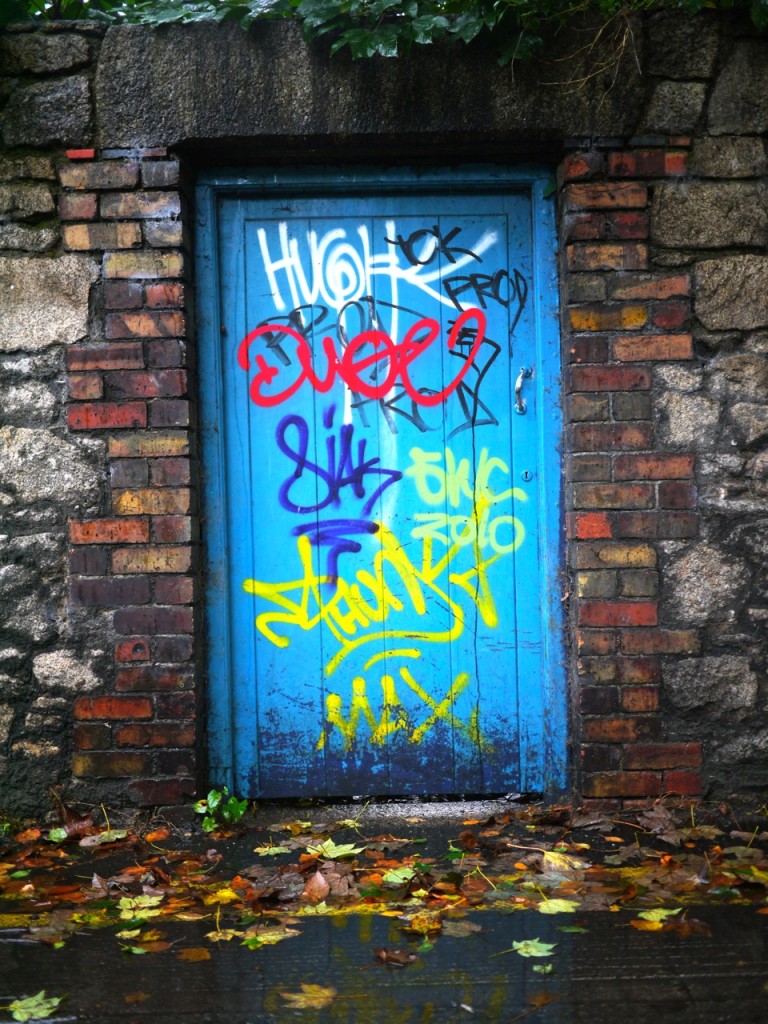
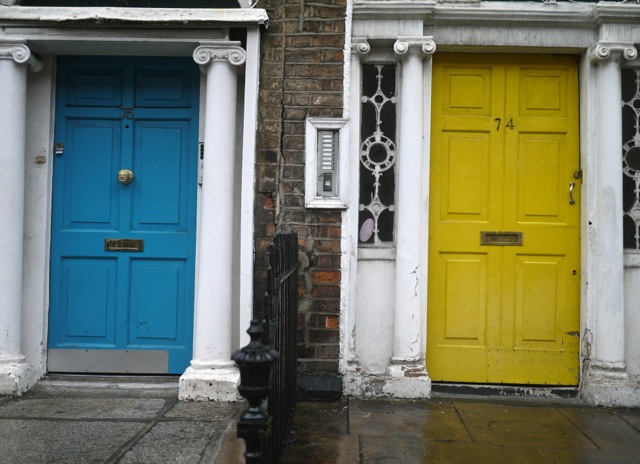
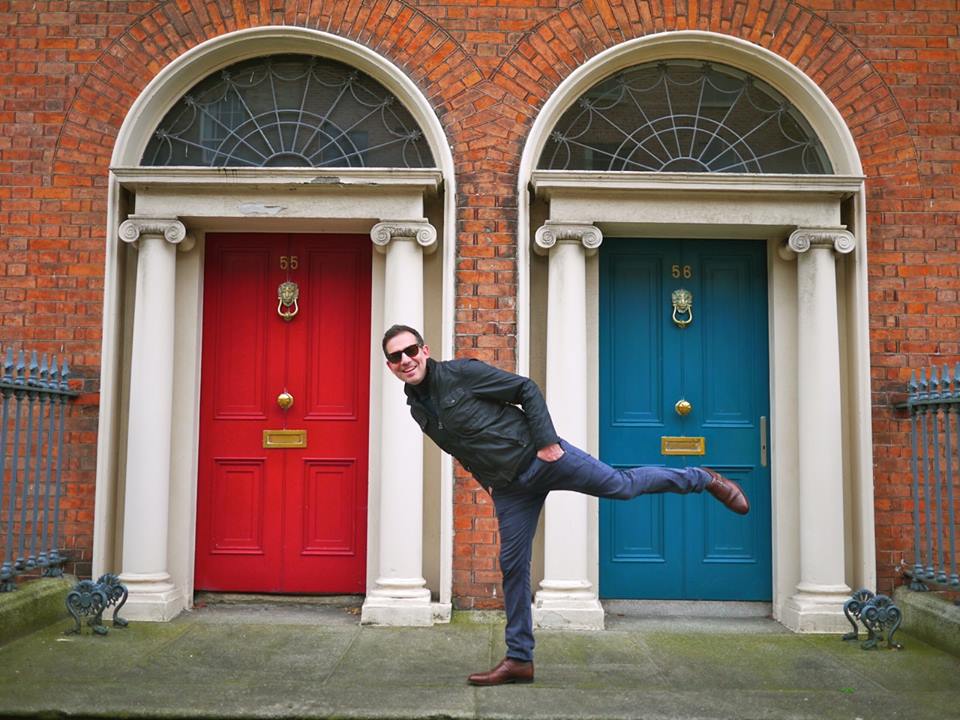
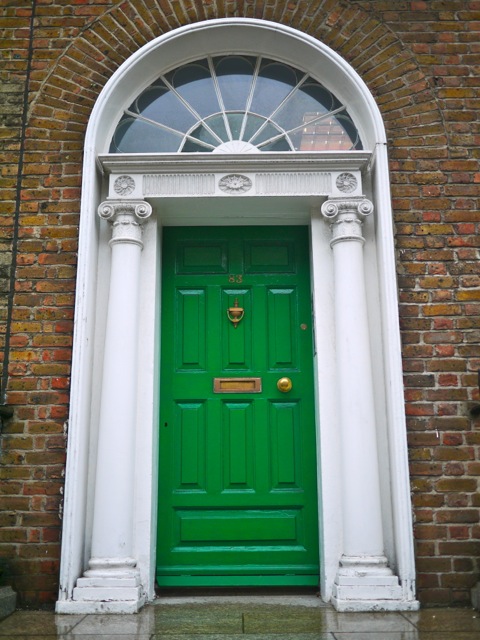
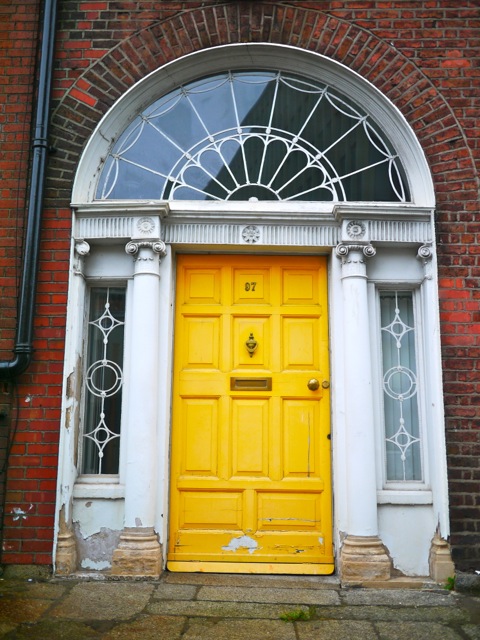
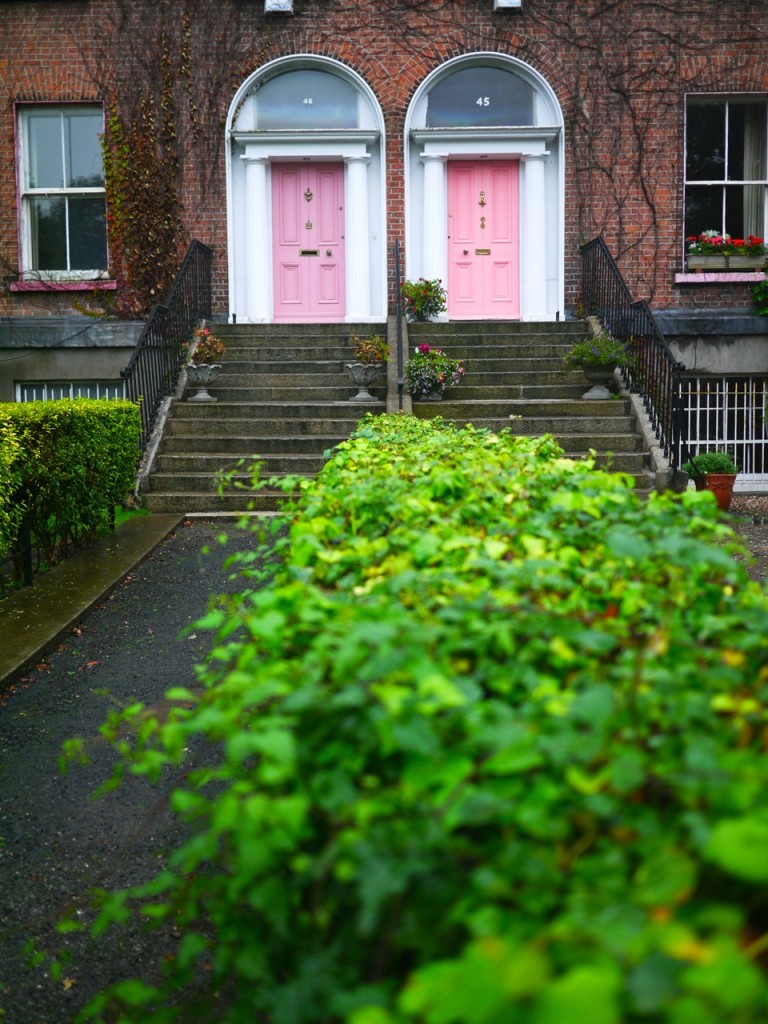
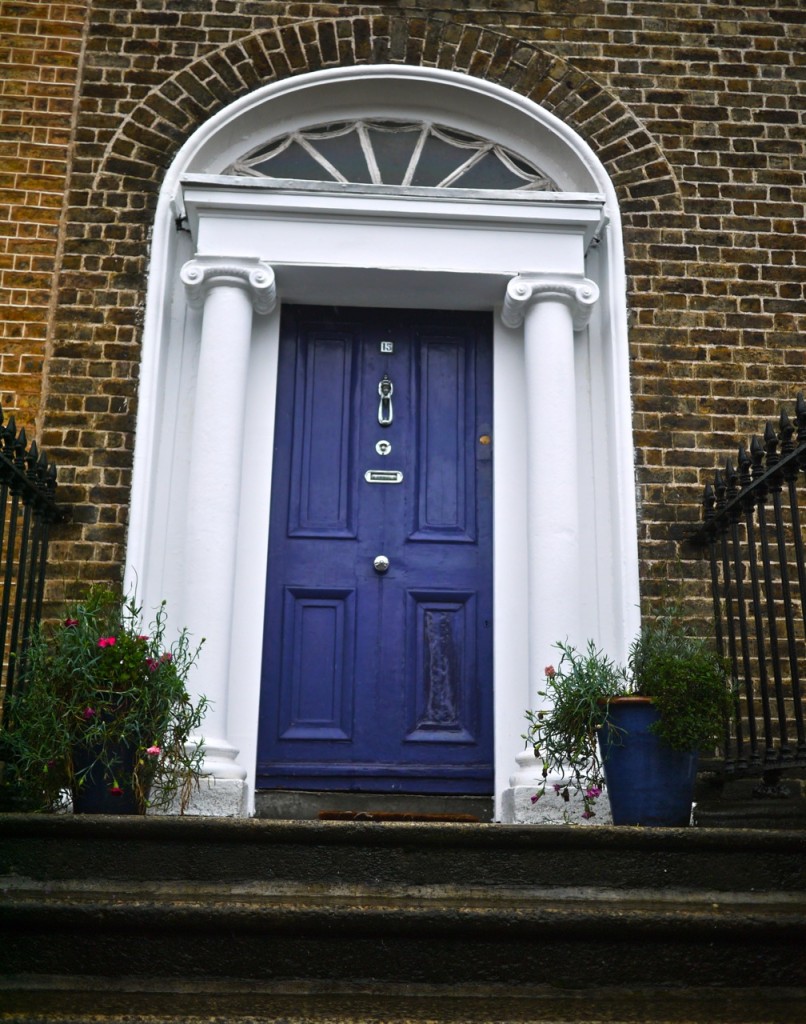
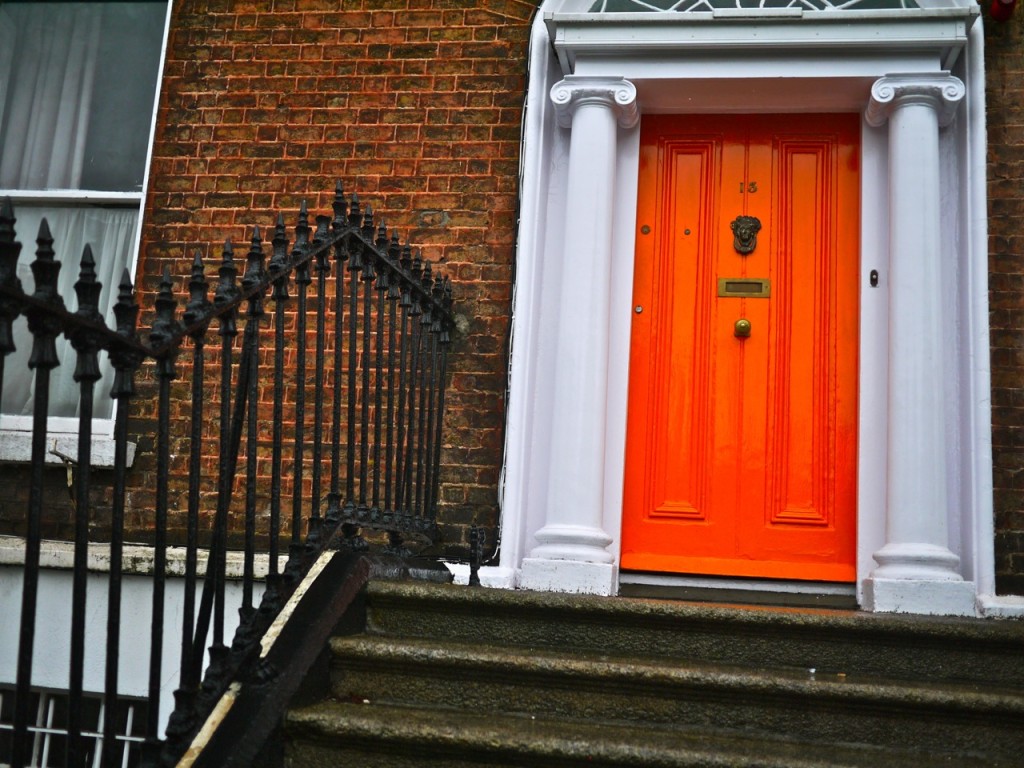
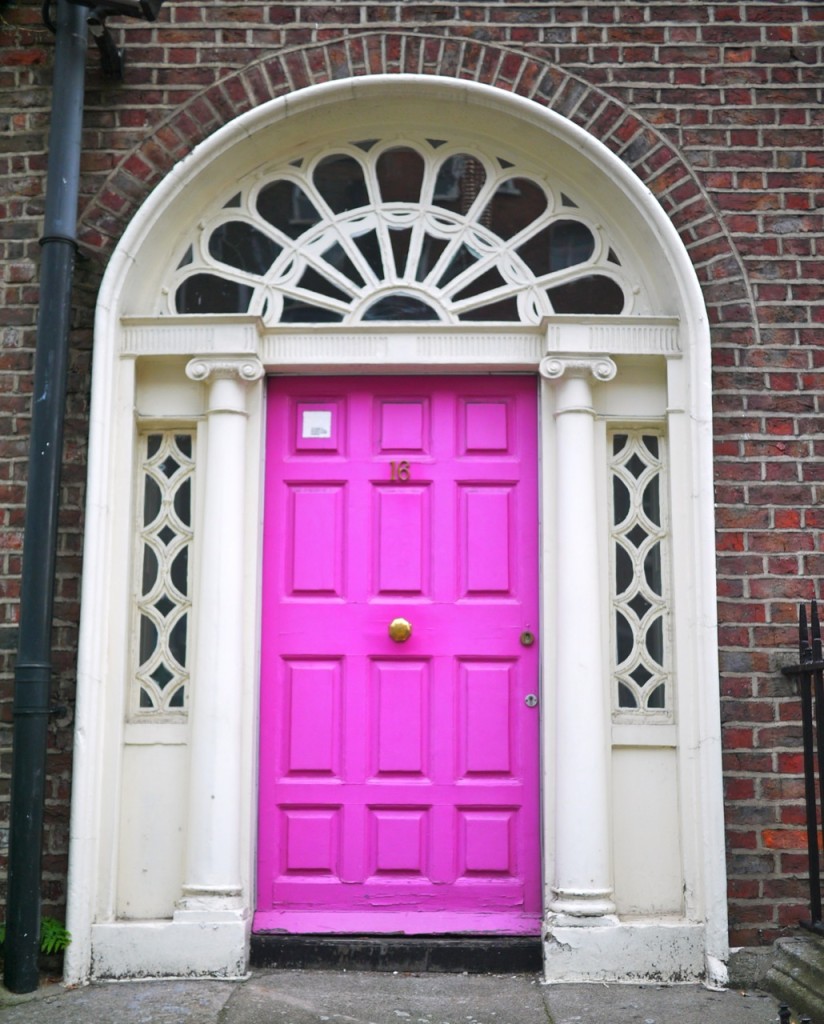
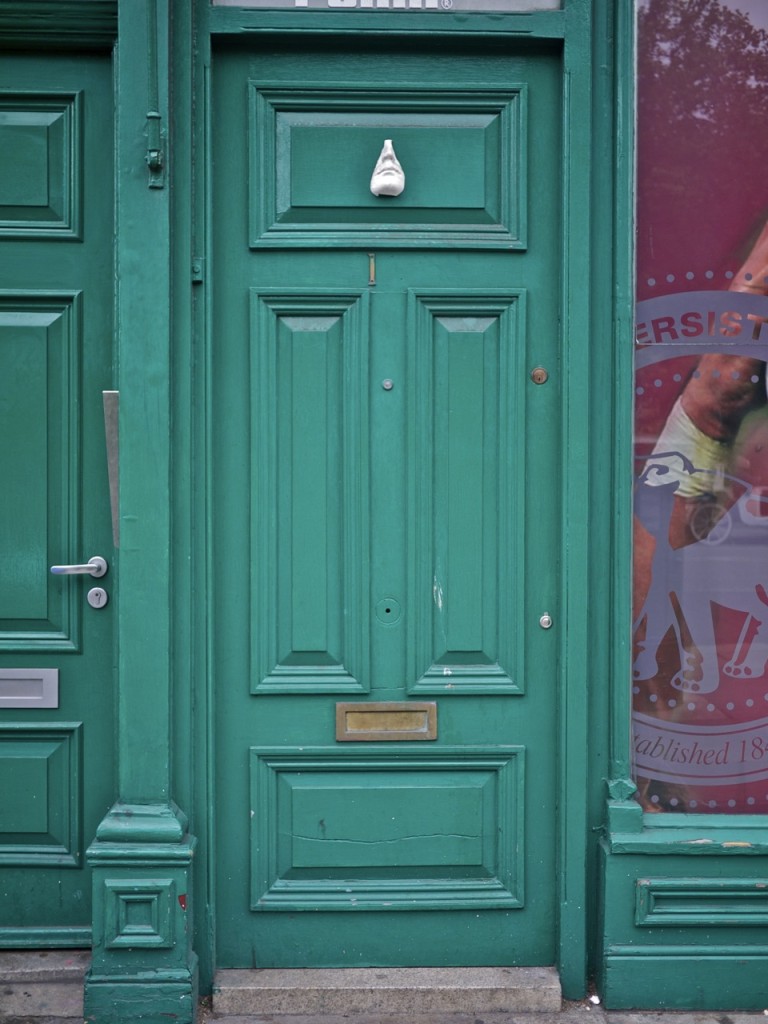
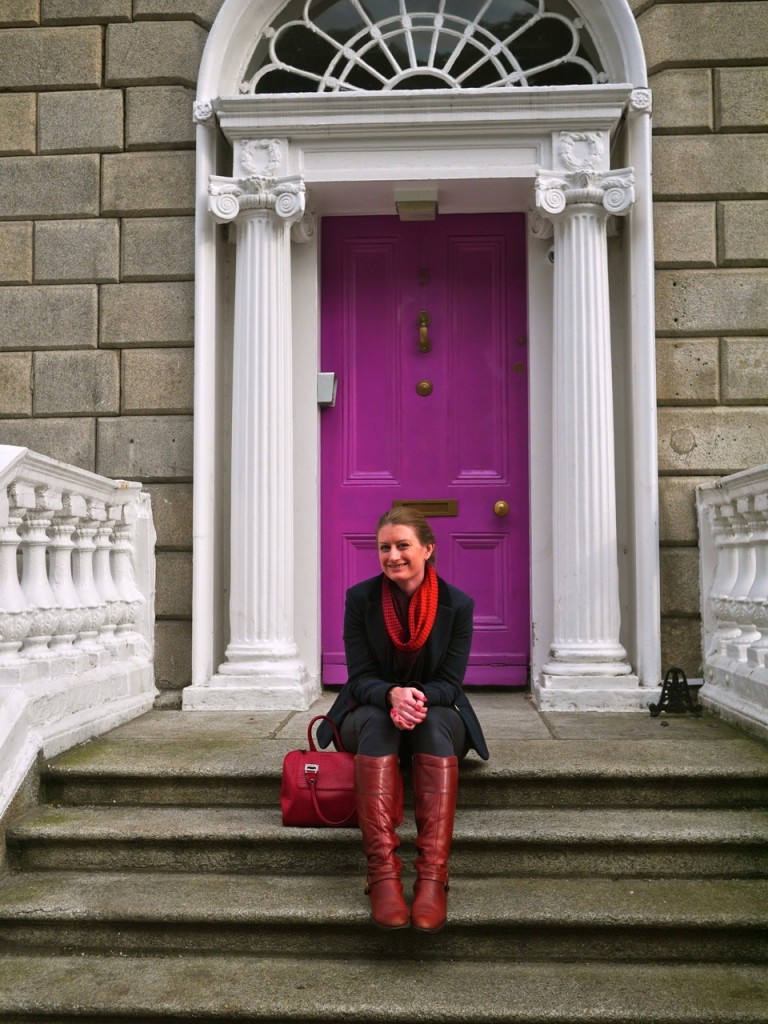

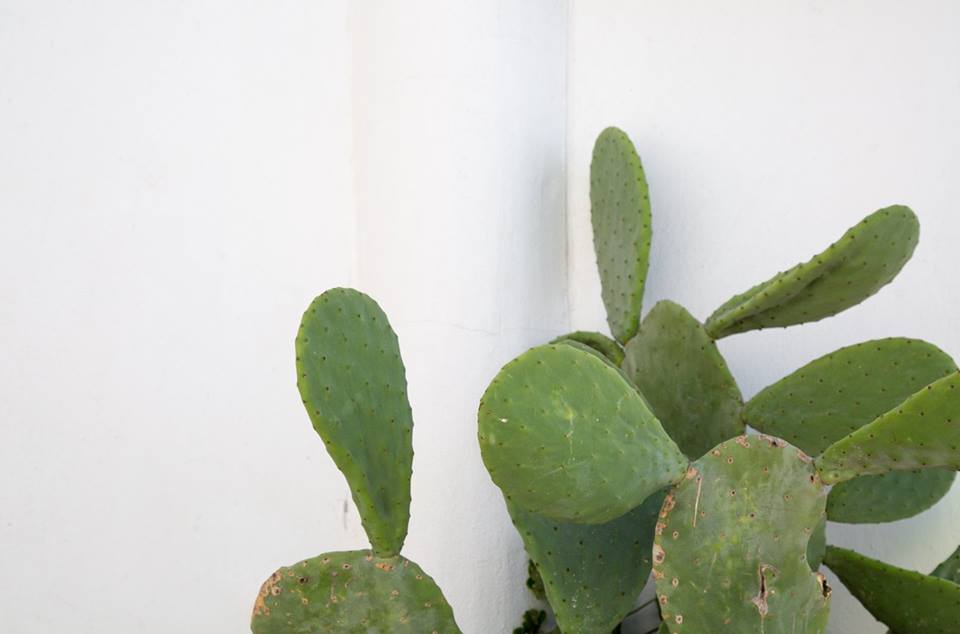

No Comments